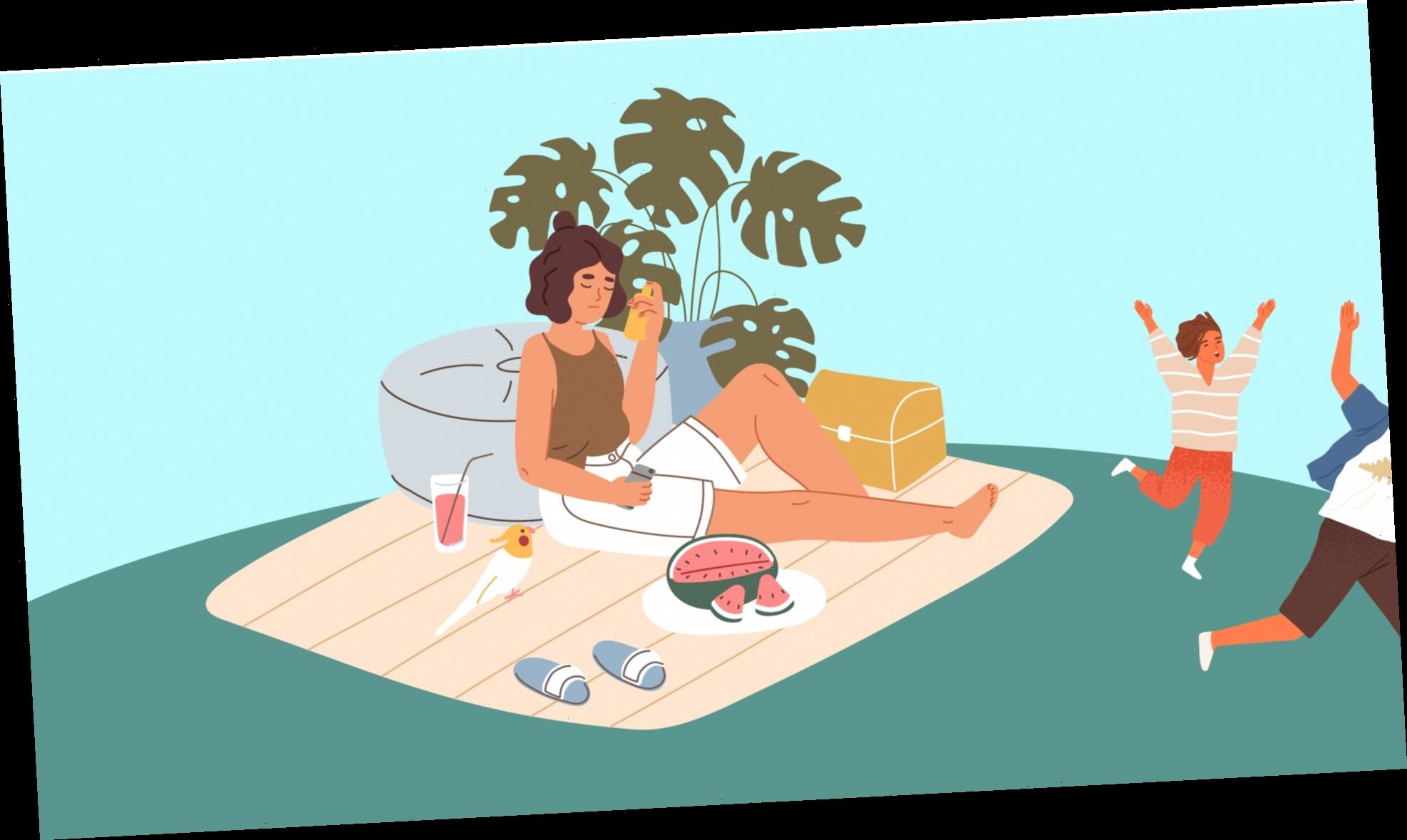I hand my five- and three-year-old sons popsicles as they sit together on our new backyard trampoline. My five-year-old looks down disappointedly and says, “Ugh. Why is it THIS kind?!”
It occurs to me that enduring his second favorite popsicle flavor may be the biggest hardship my son faces due to the pandemic. Queasy from guilt and jealousy, I realize that I want their life instead of my own. They are spoiled.
Meanwhile, at my five-year-old’s age, I lived with my single mother and a revolving cast of her abusive boyfriends. My mother walked me to the first day of kindergarten, and we gawked at the other children crying.
“Don’t meet any boys,” she said in her smoky voice as she walked away.
The next morning, I asked if she was ready to walk me to school. She was still in bed with a lit Merit Ultra Light, and said, “You know the way!” She never walked me to school again.
Soon, I was getting myself ready for school every day — because she usually wasn’t there. I made myself peanut butter toast for dinner. By the time I was 9, I was fed up with my mother’s neglectfulness and asked my aunt and uncle if I could move in with them. Today, I worry for children in neglectful or abusive homes during COVID-19 quarantine and isolation; if I were a child mid-pandemic today, would my aunt and uncle take me in? Or would I be left behind with my mother’s alcoholism and financial stress?
I question whether I would even lived. Of course, my childhood difficulties and traumas would have been compounded tenfold if I were Black.
Therapist and parenting expert Mandy Saligari, who wrote the book Proactive Parenting, explains that given my background, my children may not be as spoiled as I think they are.
“Your definition of being spoiled might simply be that their needs are being met,” she tells me. Well, that’s a relief. Then, she offers me her definition: “‘Spoiling’ has the implication that the children are not boundaried.”
Hmm. I think of all the faded quarantine homeschooling schedules on walls, and the amount of screen time we are all indulging in. It’s not even screentime anymore. It’s just screenlife.
“Parents need to resolve their family of origin pain, or they will repeat it or overcompensate for it,” Saligari tells me. And I have been working on this; I once kept a photograph of 5-year-old me at my work desk to remember “little Kathleen” — and as a reminder to look after her. But I don’t want to look after me as a child. I don’t want to be me as a child. What I want is to have my children’s spoiled lives — lives that are tailored to them, in which two parents stay home and react to their every desire. Their childhood looks way more fun.
I check my sons’ 529 accounts one evening, and they now have more saved than my first year’s salary after college. They actually have more before saved before Kindergarten than I earned last year. I slam the computer shut with rage. While previously I felt pride in putting aside money so that my kids wouldn’t start adult life saddled with debt like I did, now I’m jealous — and I want that money back. Of course, Saligari says that a parent is jealous of their children for the same reason they might spoil them: because the parent has their own unresolved childhood issues.
The good news? It doesn’t take as long to re-parent yourself as it does to parent your children. The bad news is that I’m someone who, at age 40, has heard this many, many times and still finds myself right back here.
“You need to grieve what you didn’t have, instead of curtailing what you’re giving them out of jealousy,” Saligari tells me. I start to get a bit teary. “If you prioritize their needs over your own every time, you will resent them,” she warns me.
I catch my face in the corner of the Zoom call and wonder if I smell as bad as I look. I try to casually comb my unbrushed hair with my fingers.
It’s time for the next chapter for my family, and for so many of us, in our strange new post-lockdown world. We’re like little animals emerging out of quarantine, getting off our screens and blinking as we rejoin the physical world. We are speaking up, we are looking each other in the eye, we are learning about white fragility, we are hitting the streets in protest. It’s time (for me, and for our entire American society) to do the inner and outer work. It’s the only way we’ll ever heal our inner child — and our children.
Source: Read Full Article
